Swansea City | The Great Escape | The Long Read Part One
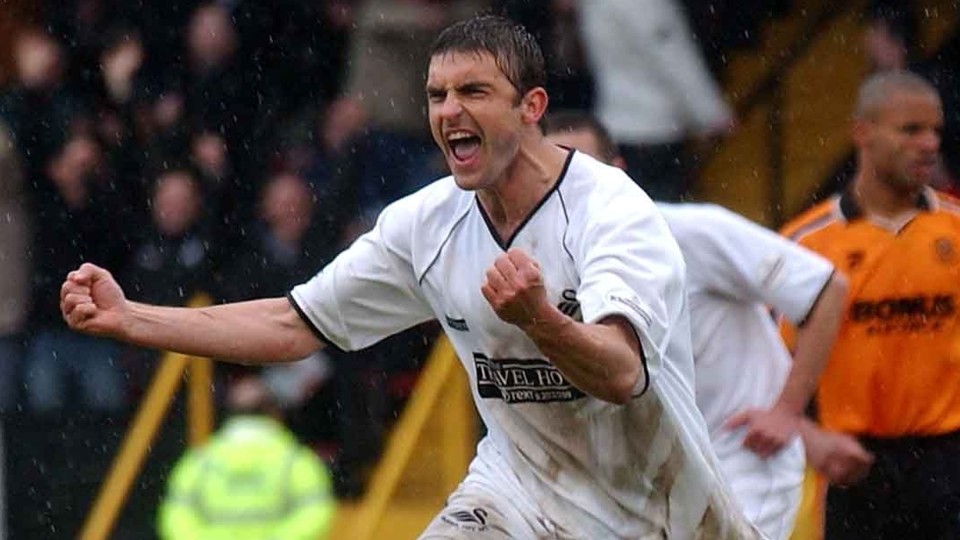
Swansea City has seen a lot in the last 20 years.
An improbable rise from the bottom tier to the heights of the Premier League, victories over Manchester United, Manchester City, Liverpool, Chelsea and Arsenal, major silverware and European adventure.
Yet it is no exaggeration to say that none of those events would have been possible were it not for the events of May 3, 2003. Twenty years ago today.
That afternoon a team scrabbled together and rebuilt during the course of the 2002-03 season faced Hull City with Swansea’s place in the Football League at stake.
Victory would keep the Swans in the Third Division, anything else and there was a very real possibility of relegation and the existential risk to the club’s future that would pose.
For a generation of Swansea fans, such a scenario is a hard one to imagine.
But that was exactly where manager Brian Flynn and his squad were when they woke up on that wet and windy Saturday.
How on earth had Swansea got themselves into this position?
Setting the scene
The previous years had been a tumultuous time for the Swans. John Hollins had led the Swans to promotion in 2000 but two years later that success felt like a distant memory.
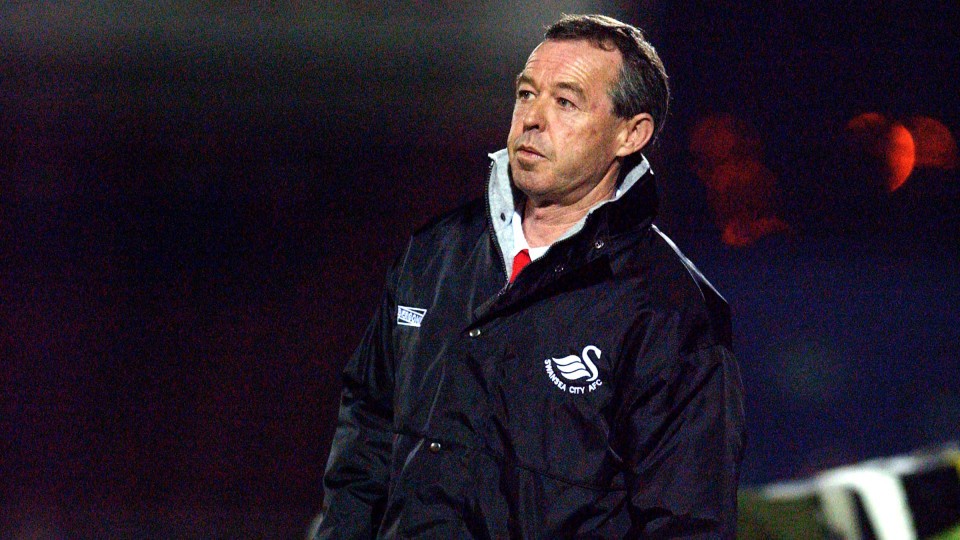
The sale of the club to Australian Tony Petty for a £1 late in 2001 led to an attempt to terminate the contracts of seven players and two coaches, which was thwarted by the Swans' player-manager Nick Cusack and the Professional Footballers’ Association.
Supporters protested Petty’s handling of the club, and it was a consortium of fans – headed by former player and director Mel Nurse – who would eventually wrestle the Swans back from Petty’s grasp just as it looked set to go out of business.
However, Swansea were far from out of the woods. Cusack had led the club admirably in unimaginably challenging circumstances, but the start of the 2002-03 season proved to be dire.
The Swans won just one of their first nine league games and were propping up the entire Football League when Flynn succeeded Cusack in the managerial hot seat on September 19, 2002.
The size of the task at hand was considerable, and not lost on the man best known for his playing exploits with Leeds, Burnley, Wrexham and Wales, before a memorable stint managing the north Wales club, which included a stunning FA Cup upset against mighty Arsenal.
“Six months prior to that I had spoken to Huw Jenkins the chairman and we couldn’t come to an agreement in terms of bringing my own staff with me,” recalls Flynn.
“I wanted to bring one person – Kevin Reeves, who was my assistant manager.
“Nick Cusack had done particularly well through the period of administration they were in, and Huw appointed Nick as manager and he wanted me to work with Nick.
“I said that wasn’t a problem, but I wanted to bring Kevin Reeves in and we couldn’t come to an agreement so we shook hands and said ‘thanks very much but it’s not going to happen’.
“Six months later Huw phoned me up and said ‘When are you and Kevin coming?’
“Being from down the road in Port Talbot it was enticing just because I was brought up with two things; rugby, which was Aberavon, and Swansea City.
“They were the two teams I supported so to be offered the chance with the right circumstances, it was too good to turn down.”
Squad overhaul
Flynn’s assessment was rapid. He did not feel the squad at his disposal would get Swansea out of trouble. An overhaul was needed.
This was a time before transfer windows and players could move at any time during a season. This worked to the advantage of Flynn, his assistant Reeves and chairman Jenkins.
“We came down, looked at the playing squad and after a month I had a big meeting with Huw and he asked what the plan was. It was 10 out, 10 in, simple,” adds Flynn.
“We need 10 new players and here’s my list of players that I want to bring in and unfortunately these are the players that are going to have to leave.
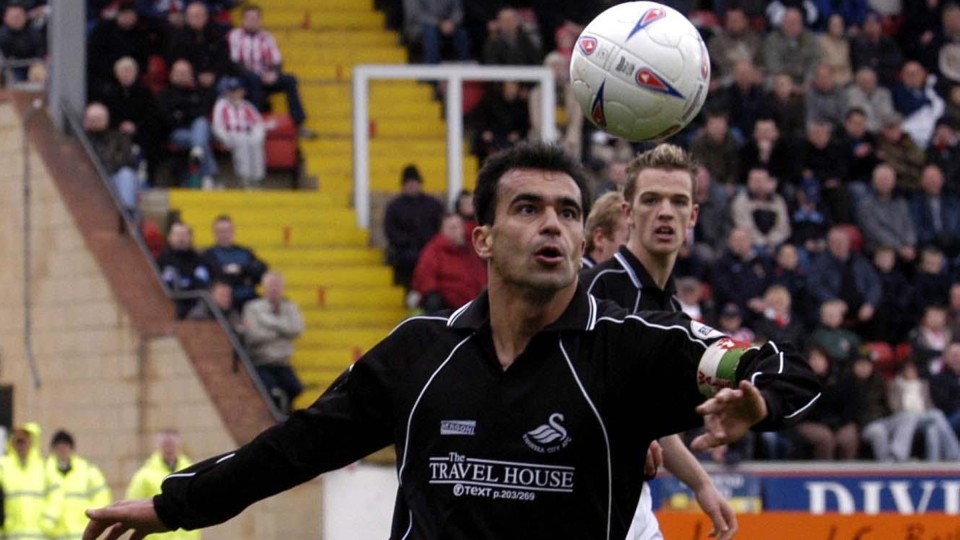
“He wanted to make the changes that day but I said ‘let’s do it nice and slowly’, especially releasing players because I might need some of them.
“It culminated with Roberto Martinez as my final piece of the jigsaw and once that was in place I was always confident we were going to stay in the league.”
Among the arrivals during this period were three men who would go on to play massive parts in not just keeping Swansea up, but charting the forward course: Martinez, Leon Britton and Alan Tate.
Tate was at all-conquering Manchester United when he got the surprise offer to move to south Wales.
“Flynny got Ryan Giggs to convince me,” recalls Tate with a smile.
“We’d had a game on the Thursday night with the United reserves, so Friday was always a recovery day if you weren’t training.
“If the first team were out training, you were allowed to go and use the facilities, so I’d gone in to use the gym.
“I was sat in an ice bath – there were a few of us in there – and Giggsy came down and said ‘Tatey, get changed and come upstairs with me.’
“I didn’t know what was happening. I was thinking I might be in trouble because this had never happened to me before.
“I jumped out of the ice bath, got changed and went upstairs.
“It’s me, Giggsy and Brian Flynn sat at a table and Flynny said to Giggsy: ‘Ryan, tell him he should come and play for me.’
“So, we’re having this conversation. Within 30 minutes of sitting at this dinner table, Flynny had convinced me to sign for Swansea on loan, took me back to my digs to get my suitcase packed, and then took me to a train station and put me on the train because he was staying up in Burnley.”
Britton, meanwhile, had long been a highly-rated youngster having been on the books with Arsenal before electing to join West Ham.
But he was growing impatient at a lack of exposure to senior football when he got Swansea’s call.
“If I’m being honest, Flynny didn’t have to say much,” says Britton.
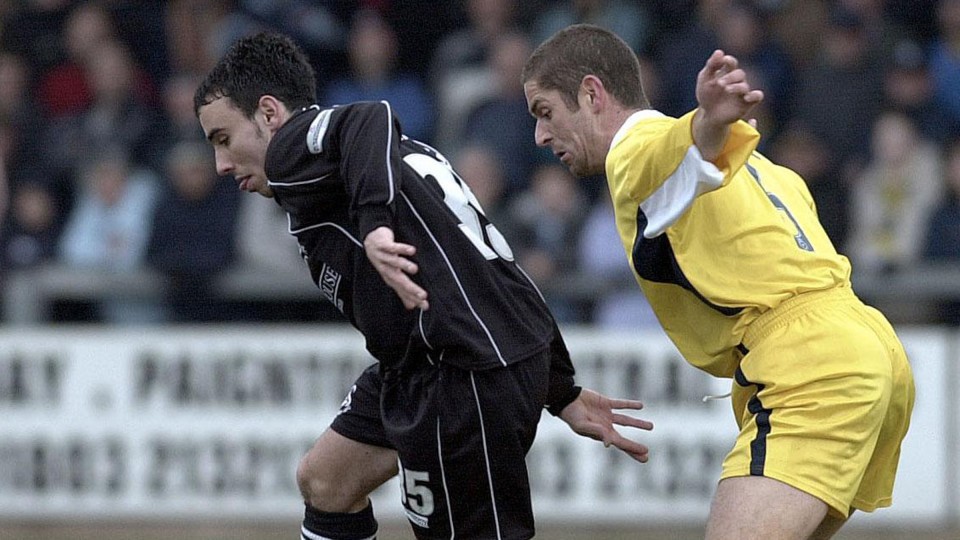
“At the time I was at West Ham in the reserves, and I was trying to go on loan anywhere basically. I had a two-week trial at Southend and it didn’t work out there and they sent me back to West Ham.
“I didn’t know where I was going to go, I was just trying. Then I got the phonecall saying Brian Flynn wanted me to go down to Swansea on a two-week trial. I jumped in the car straight away, I didn’t have to be told twice.
“I remember being at McDonald’s on Fabian Way because he had told me to head there, and staying at the Ramada Jarvis in the Enterprise Park.
“He just sat down with me and he said it was a chance for them to have a look at me, for me to have a look at the club, and just go from there.
“It didn’t take any convincing or twisting my arm to get me there, it was just “come on, let’s give it a go.”
Martinez was enduring a difficult spell with Walsall, who were in the second tier at the time. A move to the foot of the bottom division may not have looked appealing on paper, but there was a key phrase in Flynn’s pitch that caught the attention of the Catalan.
“It was the persuasion of Brian Flynn; he was such a captivating coach,” he says.
“I will always remember the first thing he said; ‘Come down to Swansea, it’s almost like a little Monaco in south Wales.’
“He then said something that really intrigued me, he said that we need to get out of trouble by playing football.
“For me, that was always a big fight, that you couldn’t be successful in the lower leagues in the British game playing good football.
“I remember arriving in Swansea in the evening, I stayed in the marina. We trained at the Vetch in the morning, and it was something I could feel, a real attachment.
“It was very strange; I think when you arrive in a place, and you feel like you’re meant to be there, that’s the way I felt.
“And then there’s always connections. I remember when John Toshack was in Spain, he was always saying he wasn’t English, but he was Welsh.
“He managed Swansea City, and that was always a name in my head, and then everything came together.”
With the turnover of players, it took time for results to improve and the Swans were still bottom in January following a 3-1 defeat at York.
However, four wins and a draw from the next six games breathed life into their survival fight. Indeed, the last game of that sequence – a 2-0 win over Cambridge United courtesy of a brace from Marc Richards – lifted them out of the relegation zone.
They continued to accumulate points steadily, but back-to-back defeats against relegation rivals Leyton Orient and Exeter City pulled the Swans back towards the trapdoor to set up a nerve-jangling final week of the season.
Rochdale
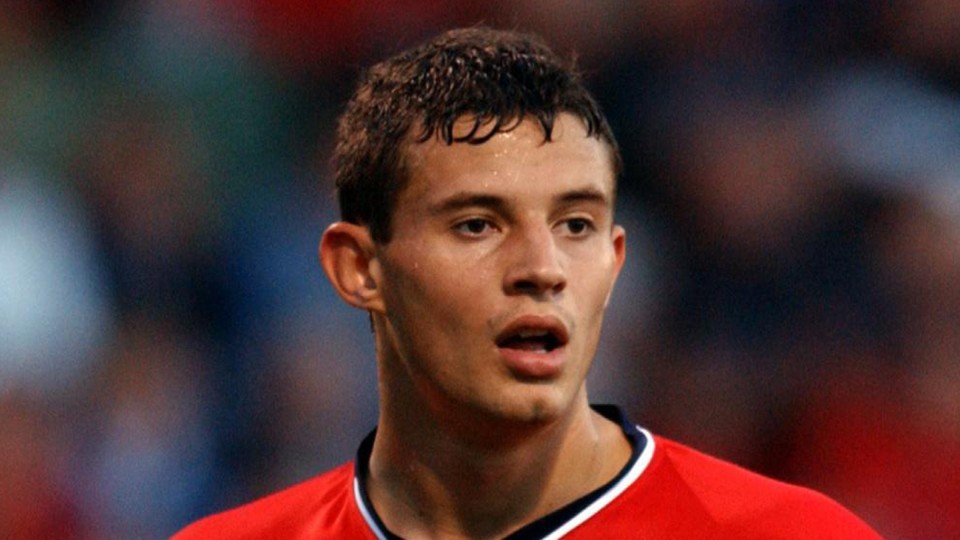
That started with a trip to Spotland Stadium to take on Rochdale where Richards scored another vital goal to seal a 2-1 win, with Kevin Nugent having opened the scoring for the visitors prior to a Gareth Griffiths equaliser.
With their relegation rivals having tough away fixtures, the Swans briefly believed that survival had been secured and they celebrated accordingly.
But a quick listen to the scores back in the dressing room revealed that Exeter had won at York, while Carlisle won at Shrewsbury.
“It was a great win and I think I ended up in the crowd that day,” says midfielder Kris O’Leary.
“I saw a few people I knew and I thought ‘sod this, I’m jumping in’ because – with the other sides around us travelling away – I thought for all of them to win away from home at that stage of the season is very difficult.
“But they did! There’s a photo of Roger Freestone with Lee Jenkins and Michael Howard. He’s in the middle of them and he’s told them that everyone else has gone and won.
“It was a bit quiet in the changing rooms but there was a quick realisation that if we were all feeling like that at Rochdale, then the other teams would be feeling the same way looking at our results, so the focus quickly switched to the home game.”
“It was frustrating but we had the advantage of knowing it was in our hands on the last day. If we won, we could not be caught. That was a massive boost,” adds striker James Thomas.
“I think Rochdale often gets underestimated in terms of its significance, it was Marc Richards who scored. We won 1-0 and after the Hull game it rather got forgotten about. But it meant we had it in our own hands and you cannot underplay how significant that is.”
It all meant the Swans went into the final weekend with 46 points to their name. With Shrewsbury Town already relegated, they were one point ahead of the final relegation spot, which was occupied by Exeter, and three points behind Carlisle.
Safety was not secure, but it was in Swansea’s own hands. Victory over Hull at the Vetch Field would see them retain their Football League status, anything else would need them relying on events in Exeter’s home match with Southend.
The big build-up
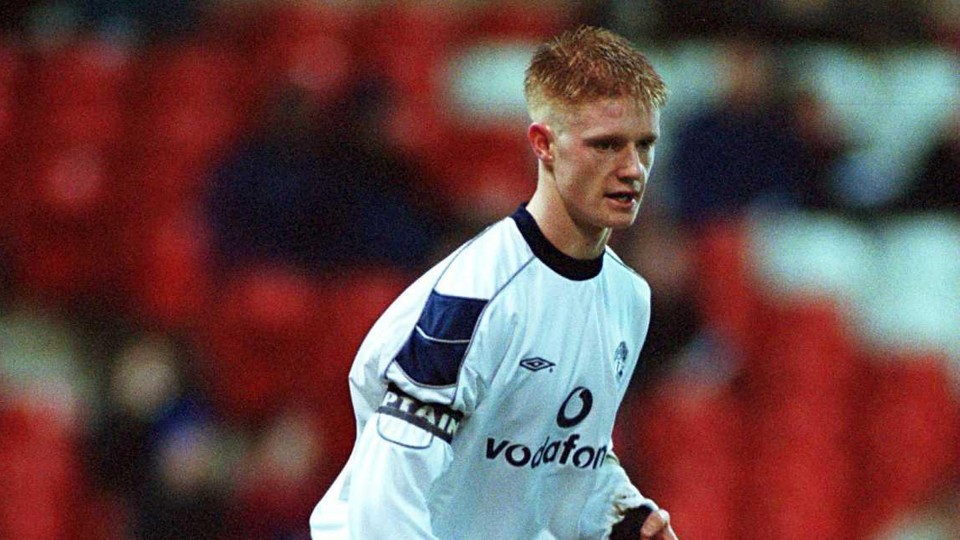
While players and staff were pleased to be in control of their destiny, the magnitude of the game was quickly rammed home to them – not that it was really required – by the large media contingent who attended training that week.
For a man who would write his name in Swansea folklore, the media presence added to a sense of embarrassment over a particular item of clothing he was required to wear.
“It was tense, every interview you did you could feel it. I remember training on the Friday morning having a lot more media there than was usually the case,” says Thomas.
“You try to just get on with it and focus on the task at hand, but it is always sitting there in the back of your head, what could happen.
“One thing that sticks in my mind is that, under Brian Flynn, the worst trainer on a Friday had to wear a yellow jersey the week after.
“And it just so happened that on that Friday, with all the media at training, I was the one wearing the yellow jersey.
“You could not have written it really, that the day after that same guy would score a hat-trick and the guy in the yellow jersey would be a hero.”
Match morning dawned wet and windy, as far away from an early summer’s day as one could imagine.
Those involved tried to follow their usual pre-match rituals, although some were happy to deviate from the norm.
“It was lamping down. But I wasn’t nervous, I don’t tend to get nervous around games,” says Tate.
“It was excitement really. I think some people suffer with nerves in terms of performance anxiety and things like that, but I was never one for that.
“For me, it was always a case of let’s get on the pitch and if anyone is nervous for the first five minutes, you usually get over that. So, it wasn’t a nervous day for me.
“I actually watched Rocky IV in the morning – I don’t know why, but the place I was living in didn’t have Sky or anything so I’d bought myself a DVD player and a few DVDs throughout the season.
“So, I ended up watching that at about 11am.
“There was no pre-match or anything in those days. We didn’t have to get to the Vetch until 1.30pm. So yeah, for me it was Rocky IV at 11.30am.”
“We tried to get in routines, we didn’t try to leave each game individually. All the players would walk from the marina to the Vetch, and we were all trying to arrive in a similar routine,” says Martinez.
“The moment when the game started, I think that is when you realise that it is something completely different. I’ve never experienced anything in my career, like what happened that day.
“We knew it was in our hands.”
“I was quite confident,” says Flynn.
“Especially after a brisk walk down the Mumbles along the promenade in the morning.
“Our routine was pretty much the same for home games, arrive at the ground between 11.30am and 12pm, do our usual stuff and wait for the players to come in and look in their eyes and see what they were feeling and they were ready.”
The scene was set.